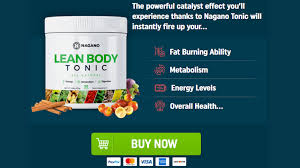
The Truth About Detox Diets: Do They Really Work?
- Detox diets are often marketed as quick fixes for weight loss and health benefits.
- The effectiveness of detox diets is widely debated among nutritionists and health experts.
- Instead of detox diets, focus on maintaining a balanced diet with whole foods.
- Natural detoxification occurs in our bodies through the liver, kidneys, and other organs.
- Consulting a healthcare professional before starting any diet is always recommended.
In a world filled with quick-fix solutions, detox diets have gained significant popularity. Many people are drawn to the idea of cleansing their bodies to kick-start weight loss and improve overall health. However, the question remains - do detox diets really deliver on their promises? In this article, we will critically examine the effectiveness of detox diets, the science behind them, and what you should consider before jumping on this dietary trend.
What Are Detox Diets?
Detox diets typically involve a period of severe restriction, aiming to eliminate toxins from the body. Many detox diets claim to help with weight loss, energy levels, and general well-being. They often include:
- Juice cleansing
- Liquid diets
- Specific food elimination
- Herbal supplements and teas
These diets tend to be short-term and may not provide sustainable results. Instead of focusing on whole foods, they often emphasize processed detox products that may lack essential nutrients.
The Science Behind Detoxification
Your body has its own natural detoxification process. The liver, kidneys, lungs, and skin work together to filter and eliminate toxins. Here’s a brief overview:
| Organ | Function |
|---|---|
| Liver | Processes toxins into safe substances and helps to eliminate waste. |
| Kidneys | Filter blood to remove waste and excess substances, excreting them through urine. |
| Lungs | Expel carbon dioxide and other gases during exhalation. |
| Skin | Releases toxins through sweat and helps regulate body temperature. |
Given this natural capability, it's essential to question the need for extreme detox diets.
Are Detox Diets Effective?
The effectiveness of detox diets is contentious. Many studies suggest that they provide short-term results but may not lead to long-term weight loss or health improvements. Here are some points to consider:
- Weight loss often comes from calorie restriction rather than true detoxification.
- Severe diet changes can lead to nutrient deficiencies.
- Some detox diets can cause digestive issues and may disrupt normal gut flora.
Healthier Alternatives to Detox Diets
Instead of resorting to extreme detox diets, consider these healthier approaches to support your body naturally:
- Balanced Diet: Focus on a well-rounded diet filled with whole foods, including fruits, vegetables, whole grains, lean proteins, and healthy fats.
- Stay Hydrated: Drinking plenty of water helps support kidney function and overall digestion.
- Regular Exercise: Physical activity supports circulation, digestion, and the release of toxins through sweat.
- Sufficient Sleep: Quality rest aids in the natural detoxification process by allowing the body to recover and rejuvenate.
For tips on meal planning and healthier food choices, check out our dieting tips and tricks.
Conclusion
While detox diets might seem appealing, it's crucial to approach them with caution. The body is equipped to manage toxins effectively, and instead of focusing on short-term fixes, it might be more beneficial to adopt a balanced lifestyle that promotes overall health. Always consider discussing any major dietary changes with a healthcare professional.
Pros
- May lead to initial weight loss due to calorie restriction.
- Can increase awareness of food choices.
- May encourage hydration through liquid diets.
Cons
- Often unsustainable in the long term.
- Can lead to nutrient deficiencies.
- May create unhealthy relationships with food.
To explore more about healthy eating habits, visit our healthy meal plans section.
